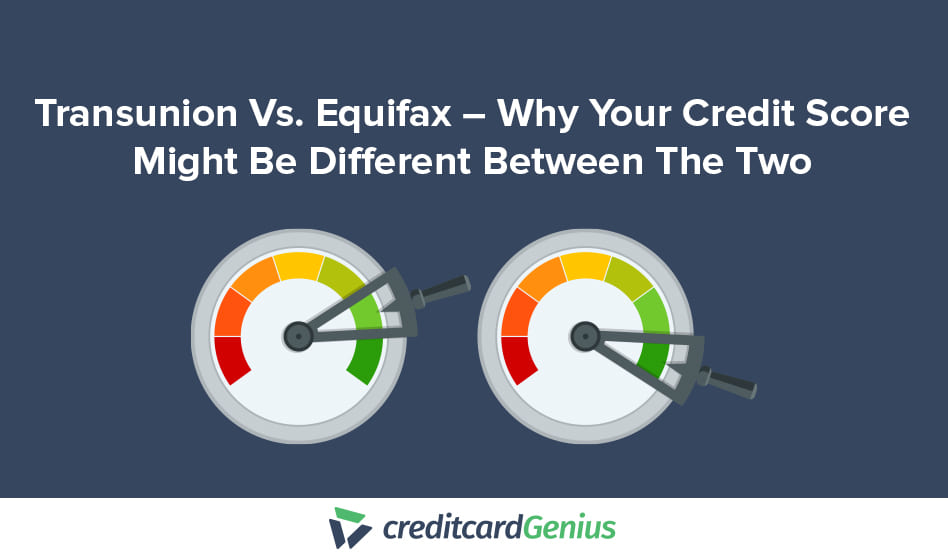Correcting inaccuracies on your credit report should be done as soon as possible, and can be accomplished by visiting the website of one or both of Canada's credit bureaus. You can choose to submit a claim online, by mail, or by phone.
Your credit report contains significant information on your financial activity, and errors can have a huge impact on your credit score. It's important to review your credit report regularly and request assistance if you spot anything out of the ordinary.
The guide below explains the types of credit report errors to look for, how you can get them corrected, and more.
Key Takeaways
- Check your credit report for errors with your personal information, account information, and credit history.
- Submit a dispute online, by mail, or over the phone with TransUnion and Equifax if you find errors on your report.
- Inaccurate information could be damaging your credit score, so it’s important to fix the errors.
Never miss an amazing deal again + get our bonus 250+ page eBook for FREE. Join 50,000 other Canadians who receive our weekly newsletter – learn more.
How to correct errors in your credit report
Credit bureaus have made it straightforward to report errors. Once you’ve read through your credit report and spotted them, gather the necessary documents (more on that in a moment) and follow these steps for each credit monitoring bureau.
Equifax
You have two options for reporting errors to Equifax Canada. You can:
- Download a form and submit it online: Head to Equifax’s website to start a dispute. You’ll download a form, provide your personal details, and explain your dispute before submitting it electronically.
- Download the form and mail it to Equifax: Print off the form and fill it out with your personal details, as well as details about the error. Then, mail it to the Equifax office in Montreal.
If you submit your information online, Equifax will investigate and respond within 15-20 days. If you mail the information, they’ll investigate and respond within 20-25 days of receiving the form.
TransUnion
TransUnion gives you three options for correcting errors. You can:
- File your request online: Set up an online account to view your report and flag any inaccuracies.
- Call customer service: Use the toll-free numbers available to contact Customer Relations, which is open Monday through Friday, 8:00 am - 8:00 pm ET or 8:30 am - 5:00 pm ET for French speakers.
- Fill out an investigation form and mail it to TransUnion: Download the report and complete it with your error details. Be sure to include the supporting documentation before dropping it into the mailbox.
Once you submit a dispute with TransUnion, they’ll investigate your account and make their decision within about 30 days. While they’re investigating, they recommend you don’t apply for new credit.
What changes can you request on your credit report?
Before you take the time to submit a report, take a quick glance at what you can report and resolve with the credit bureaus:
| Changes you can report | Changes you can’t request |
|---|---|
| Incorrect personal information (name, birth date, address, etc.) | Negative information that’s accurate (less than six or seven years old) |
| Inaccurate account information (accounts you’ve already paid off, wrong account balances, payments marked as late, etc.) | Hard credit inquiries |
| Accounts you don’t recognize or that aren’t yours | Closed accounts with a history of late payments |
| Duplicate accounts | Accounts that have gone to collections |
| Negative account information that’s inaccurate (more than six or seven years old) | Accurate account information |
Documents you may need to submit to fix your credit report
To help the reporting process flow more smoothly, have any required documentation ready for whoever is reviewing your credit report. This can include any or all of the following:
- Full name
- Social Insurance Number (optional)
- Date of birth
- Proof of address (and previous address if at current address for less than 2 years)
- Valid government ID, like your driver’s license, passport, or birth certificate)
- Name of the disputed item on your credit report
- Reason for your dispute
- Supporting documents, such as bankruptcy discharges or the release of liens from lenders
TransUnion and Equifax require slightly different things, so pay attention to what they need when you file your reports. The required documents also depend on what type of error you’re reporting.
Common credit report errors
Some of the most common mistakes found on credit reports include incorrect personal information, duplicate accounts, and bad debts that are more than seven years old.
Here's some information on these and other commonly found errors:
Incorrect personal info
Identity errors include things like slight misspellings of your name, incorrect phone numbers or birthdates, incorrect addresses, and accounts that belong to a person with a name similar to yours.
Mixed credit report
A mixed credit report is an error when two people’s credit reports are accidentally combined into one. For instance, someone named Rory Williams might find their file combined with someone named Rorey Williams.
Incorrect payment statuses
An incorrect payment status could mean an account is falsely appearing as late or that the date of the most recent payment is wrong. It could also mean that the account-opening date is incorrect, or that the date of the first delinquency is wrong..
Amounts listed are inaccurate
There might be a slight lag between when credit card, mortgage, or loan payments are posted and when the credit bureaus reflect them. Still, if payment amounts are wildly off, you can report them as inaccurate so the bureaus can investigate and update their information.
Duplicate accounts
The same loan or credit card could be listed multiple times, which can throw off your credit utilization ratio and harm your score.
Delinquent accounts
An account that's actually in good standing might be listed as delinquent, which would definitely damage your credit score.
Bad debts older than 7 years
Negative information, like bankruptcies or missed payments, is only allowed to remain on your report for up to seven years. If they’re still listed after that point, you can request that the bureaus remove that information.
Former spouse's debts
If your credit report shows loans or charges from a former spouse, you can have them removed by submitting documentation to the credit bureaus. You'll likely need to provide proof of divorce, such as your divorce certificate.
Identity theft
If you see accounts listed that you don’t recognize, you may be the victim of identity theft. Contact the credit bureaus and flag the accounts. It may also be a good idea to freeze your accounts and file a police report.
What is a credit report?
Your credit report is a collection of all your credit products you currently have, or have had over the last six years or so. It contains basics like:
- Personally identifiable information
- Credit accounts and limits
- Types of accounts you’ve had
- Payment and account histories
- Credit inquiries
- Bankruptcy public records and collections
As you can tell, your credit report is important. Lenders review your report to determine if you're trustworthy enough to access the credit they're providing. The fewer issues they see, the more likely you are to be approved, and you may even qualify for better interest rates.
Credit monitoring agencies weigh this information to generate your credit scores. This is why you'll want to check it regularly.
There's also identity theft to consider. Your credit report will show you whether any unauthorized accounts have been opened in your name.
In Canada, two major bureaus maintain your credit report – TransUnion and Equifax.
How to get a credit report
Credit monitoring bureaus provide your credit report for free, but they’re not the only option for pulling your score. Some providers also give you the option to purchase credit monitoring accounts for a monthly fee.
| Service | Type of provider | Cost | Services offered |
|---|---|---|---|
| Equifax | Credit bureau | $0 and up | * Credit score * Credit reports * Credit monitoring * Consumer disclosure * Credit and debt analysis |
| TransUnion | Credit bureau | $0 and up | * Credit score * Credit reports * Credit monitoring * Consumer disclosure * Credit and debt analysis |
| Borrowell | Third-party service | $0 and up | * Credit score * Credit reports * Credit monitoring * Financial service offers * Credit building assistance |
| Credit Karma | Third-party service | $0 | * Credit score * Credit reports * Credit monitoring * Financial service offers * Financial education and resources |
| BMO | Big bank | $0 (for banking clients) | * Credit score * Credit report |
FAQ
How do I remove inaccuracies from my credit report?
The easiest way is to visit the Equifax and /or TransUnion website(s) and report the errors there. You can also choose to send a request via snail mail or call them (only available with TransUnion) to report the information.
Is it true that after 7 years your credit is clear in Canada?
Negative information from credit cards stays on your report for six years, while bankruptcy can stay on your report for six or seven years, depending on the province. Credit checks also remain on your account for three or six years.
What is considered an error on your credit report?
There are several different types of possible errors on credit reports. These include incorrect personal information, incorrect payment amounts and/or statuses, duplicate accounts, incorrectly labelled delinquent accounts, debts belonging to a former spouse, and more.
What are the three most common credit report errors?
Incorrect personal information, incorrect account statuses, and duplicate accounts are some of the most common errors found on credit reports. That said, it’s still important to look for all types of errors when checking your report.
How long does it take to remove an error on your credit report?
It can take anywhere from 15 to 30 days for the error to be addressed and potentially removed. Equifax takes between 15 and 25 days, depending on how you submitted your request. TransUnion takes up to 30 days.
creditcardGenius is the only tool that compares 126+ features of 228 Canadian credit cards using math-based ratings and rankings that respond to your needs, instantly. Take our quiz and see which of Canada's 228 cards is for you.







































Comments
Leave a comment
Required fields are marked with *. Your email address will not be published.